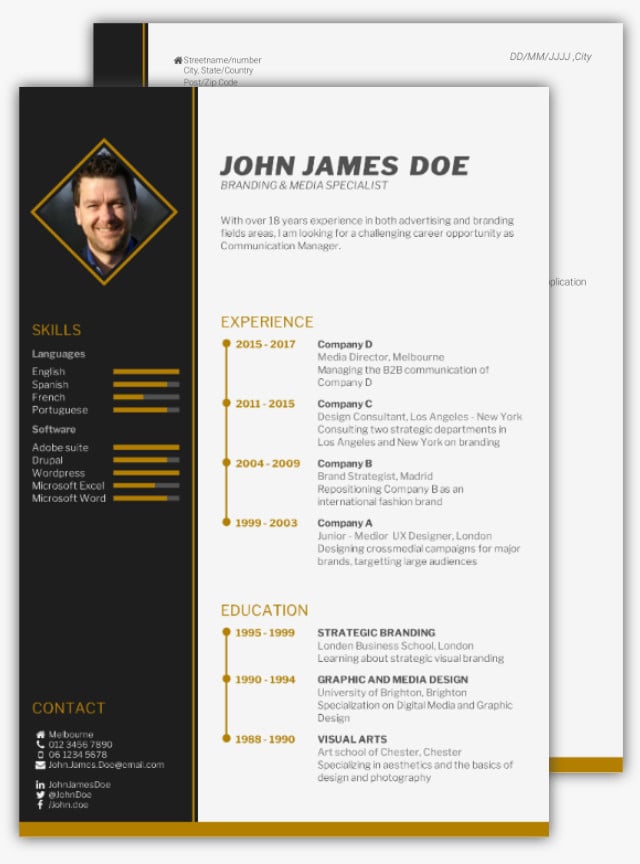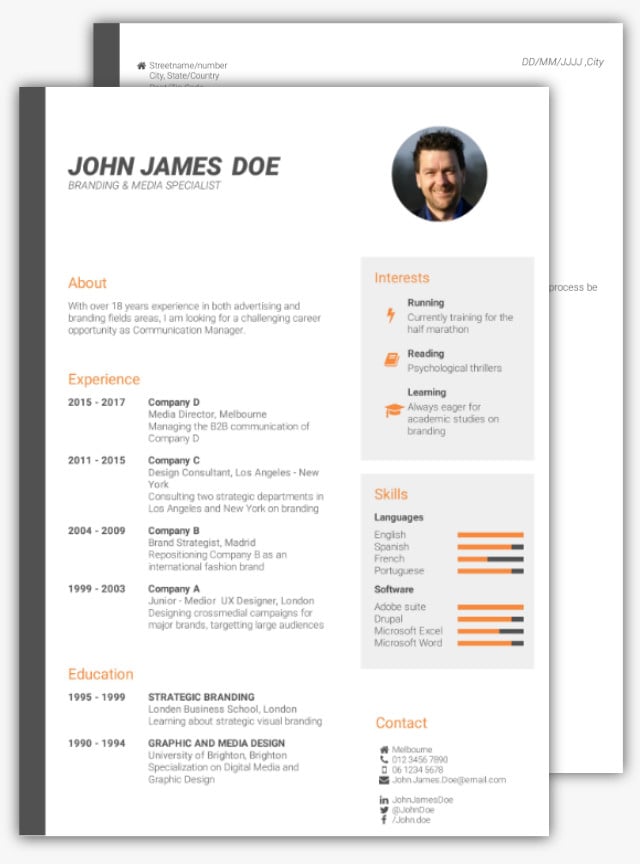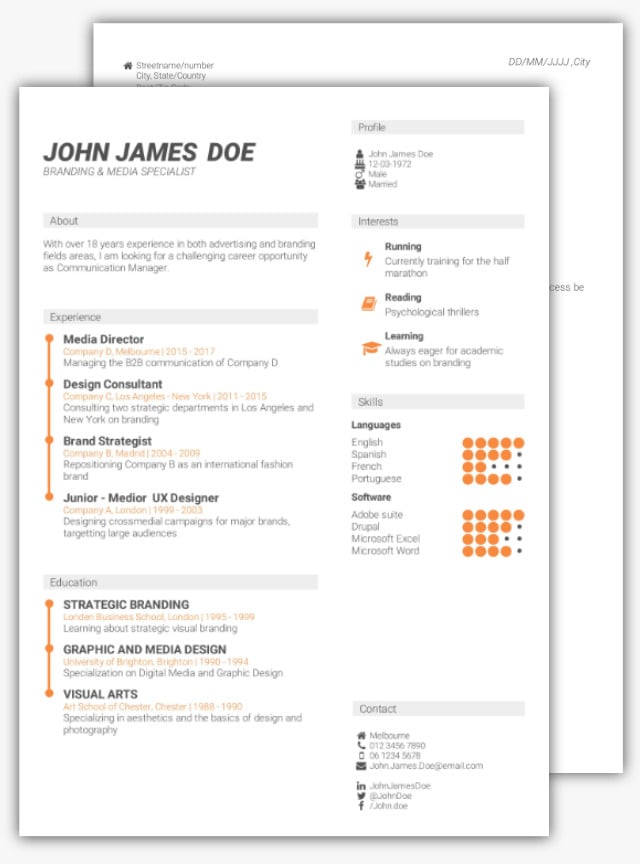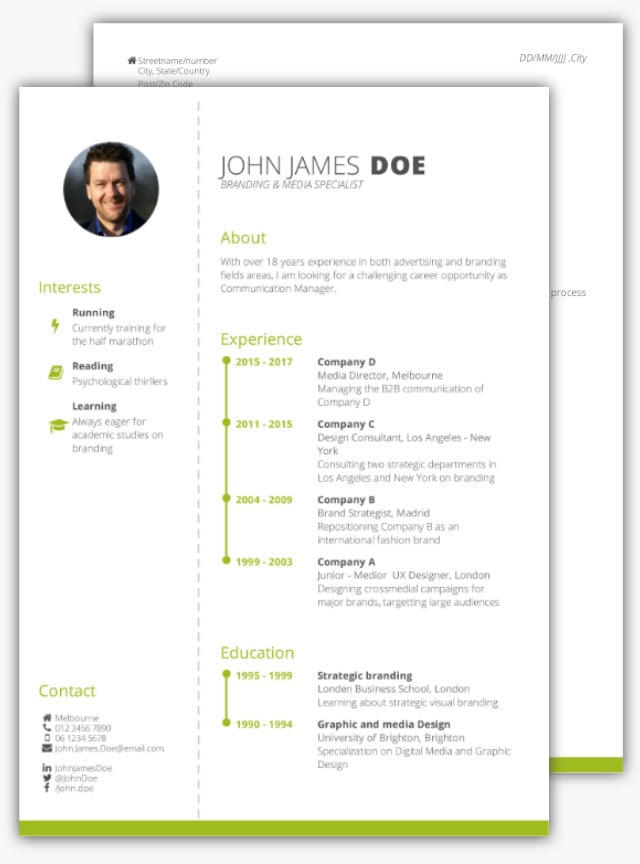How to write your education in a CV

Education in your CV…
Everyone seems to have a different opinion. And I heard them all.
From ‘It is not that important’ to ‘It is potentially the biggest differentiator’.
Questions such as ‘How to deal with unfinished courses’.
Or ‘What to do with prestigious universities’…
The funny part is, most so-called ‘experts’ just don’t get it.
These ‘career experts’ focus on unimportant, irrelevant aspects instead of adding VALUE to your CV…
So I guess that means that both answers statements are true.
Your education could be not that important AND it is potentially a BIG differentiator…
Which one do you prefer?
How most describe their education in the CV
The education section is a piece of cake… Just write it like this:
Hide it somewhere at the end of your CV and you’re done!
Right?
Luckily for you, most people do exactly that. But ask yourself. What is the added value to the recruiter?
Your CV education is an amazing opportunity to stand out!
What if you could use this CV section to make your educational background more aligned with the job?
And what should you do if your education does NOT relate to the job?
The secret lies in using the education description effectively.
Write a targeted education description and you can PROOF to the recruiter that you possess the knowledge.
Not only that. As you highlight only relevant aspects, you will be (once again) be PERCEIVED as an EXPERT.
Use the education description to give EVIDENCE of your knowledge while strengthening your personal brand!

Learn how to write your CV for MAXIMUM IMPACT!
The right way of dealing with your CV education
Remember the purpose of your CV.
You have to be the one the recruiter remembers after going through that pile of 50 CVs.
You have to design what the recruiters will think about you after SCANNING your CV for 20 seconds.
Everything should convince the recruiter that you are the solution to their problem! Every CV section should strengthen your positioning.
So here is what to do.
Go through every study you did and figure out what the most beneficial aspects are relating to your current career path.
- Which courses/aspects can support the knowledge you need now?
- Which projects support the skills you need right now?
- Why did you do that study/course? Why were you interested in that study/course? Is this reason aligned with the mission of the company?
Choose the 3 most supportive ones and combine them as the education description.
It should look something like this.
‘Personal interest/motivation (only if supportive), Courses included: item 1, item 2, item 3’.
Look at the difference below. Now your study is not ‘just an item you have to include in your CV and is not that important’.
Now it is an asset. Giving EVIDENCE that you possess the knowledge.
The recruiter should constantly nod yes after reading each section. Do it like this and it will be really hard, if not impossible, to refuse you!
Every sentence should be a checkmark on their Wishlist.
For example
‘Wanted to make a real difference in third world countries. Relevant courses include criminal defence strategies, defending in court & convincing storytelling’.
Using this description will give you immediately a ‘legal defence for third world countries’ branding instead of just a ‘human rights’ graduate.
Would you hire a ‘human rights’ graduate or the ‘legal defence for third world countries’ graduate who is in possession of the right knowledge?
That's the power of highlighting relevant courses. Just by omitting everything else. You know what to do…
Let’s make your CV education specific
Make your education as precise as possible. Do not state vague course titles like ‘Applied Biology II’. Do not use generic terms like ‘marketing’.
Think of what field you’re really into and what the company needs.
There’s only one major rule. Always use common terminology.
Perhaps you are a marketer who is into psychological email marketing.
Would you hire some ‘marketing’ guy for an email marketing job when you’ve got a ‘psychological email marketer’ on your list?
I thought so.
The recruiter is looking for THE solution for THAT specific problem that has to be tackled with THIS specific method! Be that person!
How about these education examples?
If you are applying to a scientific mathematician position:
Or if you’re applying for a medical research position:
Do you notice the difference? Isn’t that far more powerful?
It’s the same study but with a totally different impact.
How should the recruiter think about your educational background after reading your targeted description?
Do you have academic honours or extracurricular leadership roles? State them in the description!

Learn how to write your CV for MAXIMUM IMPACT!
Where to put education in your CV
The answer to this question is almost always at the end of your CV.
It does not matter if you are a seasoned professional or had just one relevant job: place the education section at the end of your CV.
But there are some exceptions…
If you are a recent graduate or still in college, an extensive work experience is not expected and it is perfectly fine to focus primarily on your education.
Did you go to an established university like Oxford, Harvard, Stanford or Cambridge?
You might want to exhibit that a little longer at the top. Or write it down in the summary.
Simply using a credible institution everyone knows will give you instantly a professional appearance.
Are you a seasoned professional but does the job match your educational background perfectly?
Highlight this in the summary with a short ‘educational background includes...’ sentence. Place the education section at the end of your CV.
CV education in Europe
Are you living in Europe? Your CV must contain your full educational background. Including high school information.
Always write your latest (and thus highest) education first and work backwards to your high school.
In Germany, companies expect the final grade point average (GPA) of each item.
Resume education in the US
Are you living in the United States?
Omit the high school information in your resume if you earned a bachelor’s degree or higher. Only state the highest education.
Moreover, only state the GPA if it is higher than 3.0 and if it is less than three years since you graduated.
Education in an Academic CV
If you are working in academia, the educational section is very important and often long and detailed. State your publications, academic honours and thesis titles. Use a single column CV in my free CV Builder.
How to deal with unfinished courses
The best way to deal with unfinished courses depends on where you are in your career and duration of the course/training.
Are you still studying? Just note this in the description and state JJJJ-Present. Other words to use are ‘In progress’, ‘Expected Graduation + date’ or ‘Anticipated + date’.
Does the education cause a large gap in your CV or if you are at the beginning of your career? Note that you only did the education partially.
Recruiters are keen at spotting gaps, so hiding it is not the best option.
Be ready to explain this during the interview!
The easiest and most positive way of saying that you didn’t finish the education is to write the completed courses/points within the description like “Completed 45 credits towards a BA in Psychology”.
If there are courses that are relevant to the position, include them like this: “completed courses include x, y, z”.
Your work experience is far more valuable to employers, but even aspects of unfinished studies could be used in your favour!
Education checklist
- Put your Educational section at the end of your CV, except if you are just graduated or have a degree from a prestigious university.
- Describe your advanced degrees first and work back towards your high school.
- Don’t state your high school in the US if you have a bachelor degree or higher.
- GPA is optional; only list your GPA if it is above 3.0 AND you graduated recently (no more than 3 years ago).
- In Germany, always include your GPA.
- Use the education description to align your education with the desired job position, proving that you have the right knowledge.
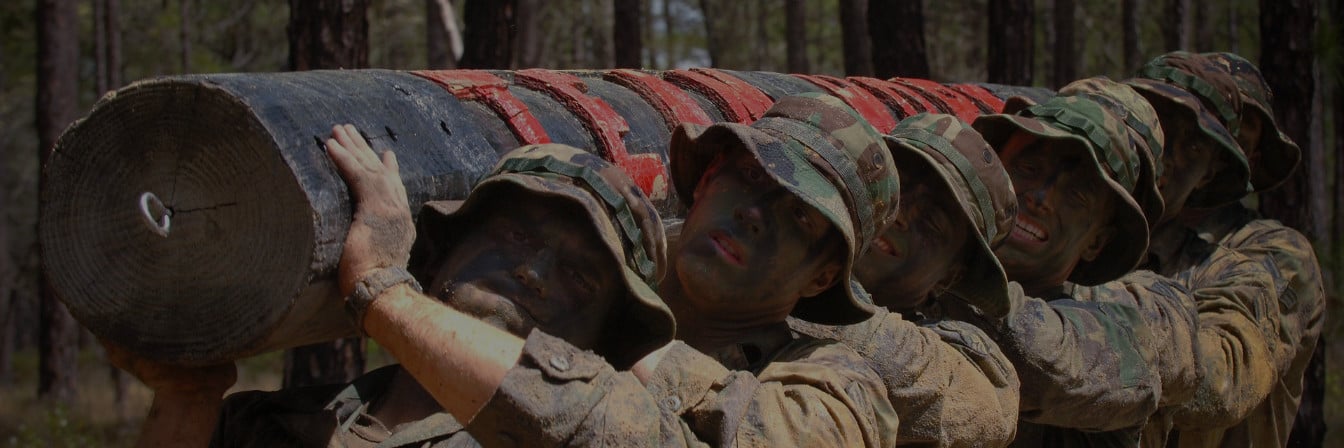
How about answering the ‘what are your greatest strengths’ question with the RIGHT strengths next time?



